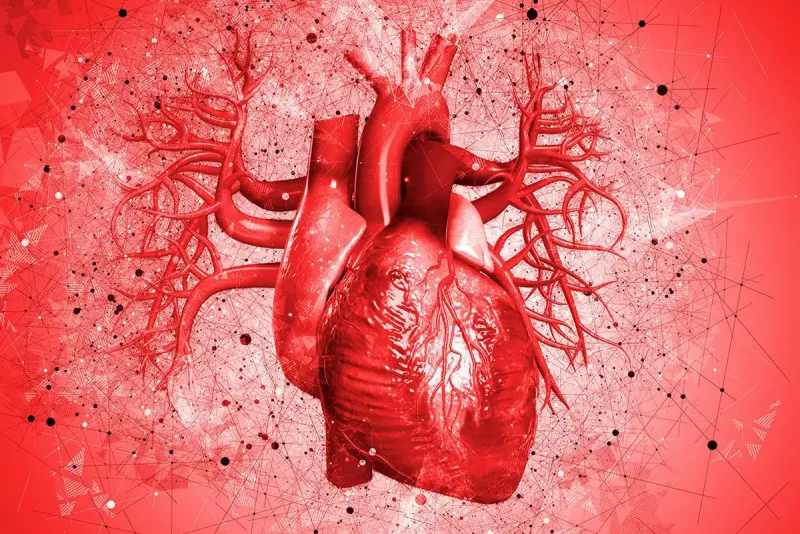Heart attack occurs when the flow of blood to the heart is blocked. The blockage is most often a buildup of fat, cholesterol and other substances, which form a plaque in the arteries that feed the heart (coronary arteries).
The plaque eventually breaks away and forms a clot. The interrupted blood flow can damage or destroy part of the heart muscle.
Read Also: 4 Cities In the World Where Only The Rich Lives
Causes:
A heart attack occurs when one or more of your coronary arteries become blocked. Over time, a coronary artery can narrow from the buildup of various substances, including cholesterol (atherosclerosis). This condition, known as coronary artery disease, causes most heart attacks.
During a heart attack, one of these plaques can rupture and spill cholesterol and other substances into the bloodstream. A blood clot forms at the site of the rupture. If large enough, the clot can block the flow of blood through the coronary artery, starving the heart muscle of oxygen and nutrients (ischemia).
You might have a complete blockage or partial. A complete blockage means you've had an ST elevation myocardial infarction (STEMI). A partial blockage means you've had a non-ST elevation myocardial infarction (NSTEMI). Diagnostic steps and treatment might be different depending on which you've had.
Another cause of a heart attack is a spasm of a coronary artery that shuts down blood flow to part of the heart muscle. Using tobacco and illicit drugs, such as cocaine, can cause a life-threatening spasm.
- Risks you can’t change There are a few risks you can’t do much about: Age: As you get older, your risk of heart disease increases. Gender: Men are at higher risk of heart disease. Women’s risk grows and may be equal to men after menopause. Ethnic background: People of some origins such as Aboriginal and Torres Strait Islander people, or people from the Indian sub-continent, have higher risk. Family history: If someone in your family has had a heart attack, speak to your GP about your risk. Risks you can change Most heart disease risk factors can be changed, and there’s plenty you can do about them:
- Smoking Being smoke free is one of the best ways to protect your heart. If you are a smoker, you should stop. READ ABOUT SMOKING AND YOUR HEART
- High cholesterol An imbalance of cholesterol in your blood can lead to a heart attack or stroke.MORE ABOUT BLOOD CHOLESTEROL
- High blood pressure Blood pressure isn’t usually something you can feel. If it’s too high, it needs to be treated.MORE ABOUT BLOOD PRESSURE
- Diabetes It’s important to manage your diabetes to help prevent a heart attack or stroke. FOR MORE INFORMATION SEE DIABETES AUSTRALIA
- Being inactive Not getting enough physical activity isn’t good for your heart health. BE MORE ACTIVE
- Being overweight Being overweight or obese increases your risk of heart disease.HOW TO BE A HEALTHY WEIGHT
- Unhealthy diet Eating a varied diet of healthy foods can help with your weight, blood pressure and cholesterol.MORE ABOUT HEALTHY EATING
- Depression and social isolation There can be a greater risk of heart disease for people who have depression, are socially isolated or do not have good social support.
- Source : ???? foundation




